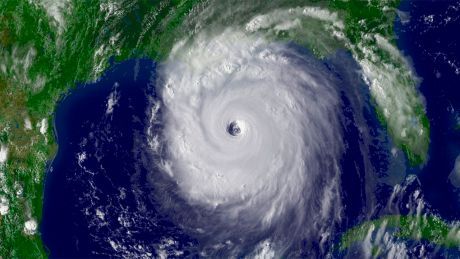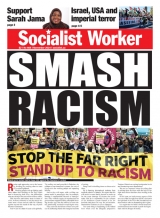Features
You are here
Hurricanes, fossil fuels and capitalism

September 18, 2017
In the Florida Keys town of Marathon, as the sea drained away from the bay, a woman screamed from her balcony: “My God! My God! The sea is gone!” Far from being gone, the sea was preparing for a surge back, as part of the cycle of hurricane-related events that overtook Texas, much of the Caribbean and Florida in recent weeks, wiping out the island of Barbuda, which has been inhabited for over 300 years.
Hurricane Harvey had the strongest winds ever recorded In the Atlantic’s history. As predicted by climate scientists, weather “extremes” are becoming more common.
At the same time as the hurricanes were happening, the largest forest fire in BC’s history was on the rampage. And in Alberta’s beautiful Waterton Lakes National Park another fire was taking over.
Who is affected most?
Andy Horowitz states, "There is no such thing as a "natural" disaster, because who is in harm's way and the kind of harm they face is a product of human choices."
Judie McRae told the BBC about her failed effort to evacuate from her home in a trailer park: "I had some problems getting out of town, a little broke and stuff, so I had to come and, you know, tough it out. We're all the working-class people. We're the ones who … do all the work. We don't have a lot of money."
As Robert Bullard, environmental justice theorist explained, "When we look at the color of vulnerability and we look at which communities are actually at greatest risk from disasters and floods like this, historically, it’s been low-income communities and communities of color, communities that live in low-lying areas that are areas that are very prone to flooding…What Harvey has done is to expose those inequalities that existed before the storm. And, you know, disasters like this widen and exacerbate inequality.”
Capitalism’s triple whammy
Capitalism utterly depends on fossil fuels and the profits associated with production and distribution – think tar sands and pipelines. While it is possible to switch to sustainable energy sources (solar, wind, thermal), capitalists will not tolerate having “stranded assets” in the tar sands and elsewhere. And so we go nowhere.
The second problem is that austerity measures – which have been the only thing on offer from the ruling class – have meant cuts to the very programs and services that help prevent or lessen the impacts of severe weather, like levees, and crisis response services.
Lastly, a large section of the ruling class insists on business as usual. This Toronto Star headline says it all: “U.S. real estate … are teaming up … to block public release of sea-level rise predictions and ensure that coastal planning is not based on them.” And, after lobbying from the National Association of Home Builders, Trump rescinded an executive order requiring the federal government to account for climate change and sea-level rise when building infrastructure, such as highways, levees and floodwalls.
Around 300 trailers have been sold by the federal government since the start of the year, leaving just 1,700 for use. Meanwhile 79,000 homes were flooded by Hurricane Harvey.
Socialism or barbarism
Our ruling class won’t volunteer to end the use of fossil fuels, create the mass transit or retrofitted buildings we need. Socialism means the 99% taking power (literally) into our own hands to create the society we need and deserve.
Section:
Topics:










